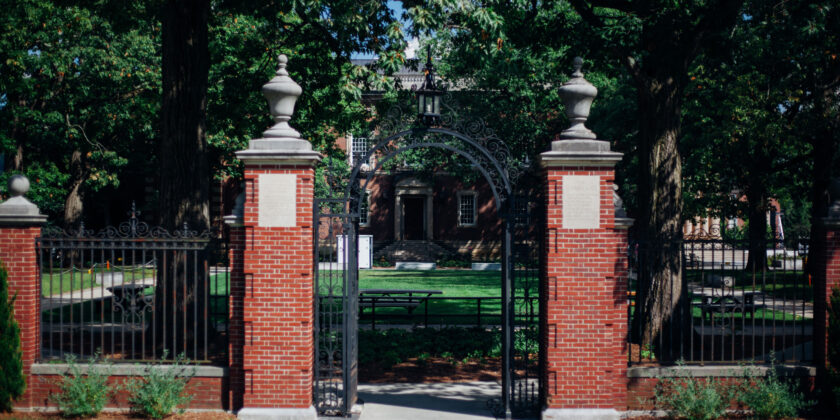Resume Magic
Yale podcast/blog: https://admissio
Michigan’s application instructions: http
Princeton’s helpful tips: https://admissio

Yale podcast/blog: https://admissio
Michigan’s application instructions: http
Princeton’s helpful tips: https://admissio
Writer’s block is no joke! It happens to the best of us, so don’t get too frustrated if some days you just can’t get in the groove with your writing. When it strikes, try using these ideas to help jumpstart the process:
If you aren’t getting anything down in 20 concentrated minutes, it might be time to skip to 4 and 5.
Ultimately, the only way to get over writer’s block is… to write! You can do this!
*Stay in the know! Subscribe*

Often, the subject that makes for the best essay is the one you least want to talk about. So stay open as you begin the brainstorming process, even to your most sensitive relationships and memories, and notice if there’s a story you’re afraid to tell. Maybe that is your best topic. Most importantly, don’t hold back or self-censor: don’t be afraid to show your messiness and flaws, and know that no story from your life is too small or too silly to include (as long as it’s not from when you were a very small child!).
It takes courage to be vulnerable and imperfect, to admit to your mistakes and regrets. A tip? Be courageous as you brainstorm.
The following questions are some that we use in our 1:1 work, and that you might find helpful to answer as your brainstorm:
Try to identify 6-8 (or more!) of such turning point moments and write three or more sentences about each. Turning points tend to suggest scenes with dramatic potential in addition to being moments of change and growth, and nearly all the essays our students write revolve around them. Keep in mind that turning points can be minor, like an argument with a friend about who will take charge of an extracurricular project.
Think fast:
When we work with students one-on-one, we review the brainstorming document, noting the narratives, ideas, themes, and details that interest us the most. It can be easier for us, as outside readers, to notice recurring patterns (for example, how you constantly link your ideas back to collecting objects) or to make new connections between disparate experiences and interests (like between your love for puzzles and your brothers leaving for college). Since it will be harder for you to do this for yourself, you should: 1) wait a week between completing and evaluating your brainstorm, and 2) find an outside reader who can read your brainstorm and give you feedback.
*Stay in the know! Subscribe*
The school year is winding down, which means it’s time to start working on college admissions essays. This month, we’ll share some excerpts from our book, The Complete College Essay Handbook, starting with some personal statement tips!
First, what exactly is a personal statement like the Common Application essay?
A personal statement is a creative essay of 650 words or less that reads like a short story, memoir, or novel—not like an academic essay, textbook, or newspaper article. The best personal statements tell a story that culminates in a meaningful realization and offers the reader a glimpse of a mind in the process of thinking.
The personal statement is not the place to brag about accomplishments (student body president, team captain, founder of a schoolwide service project), or about how amazing you are (“I’m a world-changing revolutionary!”).
Although people you don’t know are going to read it, the personal statement is not a public form, like a school-wide speech. The personal statement is an intimate form, like a secret. It is the place to be honest, vulnerable, and raw, to reveal mistakes and weaknesses, to open up about an experience you’d only tell someone you were really close with, to explore what you struggle with and what scares you.
The personal statement is not “about” an event or achievement. It is about the psychological and emotional processes that occurred “behind the scenes.”
The same story, told from one angle, can be impersonal whereas, from another—told with a focus on the process rather than the outcome—can become deeply personal. Here are a few examples to help explain what I mean.
Notice how all of these negative examples focus on the superficial event: I was elected; I raised money; I tore my ACL. By contrast, the positive examples explore the story behind the event—what was going inside of the writer that either led to this event (the student body president and orphanage examples) or the internal change that resulted from it (the ACL example). They also explore intimate, potentially difficult topics.
Since the personal statement is a creative essay at its heart, there is no set formula for success—however, our process and essay samples will give you the tools and examples you need to write your own standout personal statement.
*Stay in the know! Subscribe*

The main CA essay prompts are the same, but there’s an updated “challenges and circumstances” question, which replaces the old COVID-19 question. The post from the CA is below:
We are happy to announce that the Common App essay prompts will remain the same for 2025–2026. 🎉
Based on positive feedback from students, counselors, teachers, and colleges, we’ve decided to keep the essay prompts unchanged. We will continue to explore trends in prompt selection across different student populations and use those insights to inform future updates.
Students will see two changes to the optional “Additional information” questions as of August 1, 2025.
We are making these changes after conducting listening sessions and consulting with our member, counselor, and student advisory committees to ensure we gather diverse perspectives and input. Students in the first-year app who have text in their “Additional information” question that exceeds the reduced word count limit after August 1 will see an error message alert letting them know they have exceeded the new max. They will not lose anything they have written prior to August 1, but they will need to go back and adjust their response. In the transfer app, student responses to the “Additional information” question prior to August 1 will not roll over.
Here is the full set of essay prompts for 2025–2026.
This is the updated “Challenges and circumstances” question language students will see beginning August 1, 2025
Sometimes a student’s application and achievements may be impacted by challenges or other circumstances. This could involve:
If you’re comfortable sharing, this information can help colleges better understand the context of your application. Colleges may use this information to provide you and your fellow students with support and resources.
Would you like to share any details about challenges or other circumstances you’ve experienced?*
( ) Yes
( ) No
Please describe the challenges or circumstances and how they have impacted you.
*Stay in the know! Subscribe*

Colleges have continued to roll back test-optional policies. We will update this post as more policy changes are made for fall 2026.
Auburn (testing STRONGLY preferred; required with under a certain GPA)
Brown
Cal Tech
Cornell
Dartmouth
Georgetown
Georgia Tech
Harvard
JHU
MIT
Ohio State
Penn
Purdue
Stanford
University of Georgia
University of Florida (state-wide)
University of Miami
UNC Chapel Hill (required with under a certain GPA)
University of Tennessee (state-wide)
UT Austin
Yale
For 2027: Vanderbilt, Wisconsin (Madison) = which means they prefer scores now…
We have also found it beneficial to send high scores to most other test-optional schools in the top tier, especially if you are applying to a selective major (engineering, comp sci, data science, business, hard sciences) or attend a high school where the majority of students test and test well:
Vanderbilt – test preferred
Northwestern – test preferred
Duke
Princeton
Columbia
Rice
WashU
Notre Dame
Carnegie Mellon
Tufts
Emory
USC
Boston College
Boston University (exception: General Studies)
NYU
Clemson
Case Western
Villanova
University of Chicago
University of Michigan – test preferred
University of Wisconsin – test preferred
University of Virginia
University of Illinois
University of Maryland
Reach out to us if you’d like help with your application strategy and deciding if you are a good candidate to apply test-optional.
*Stay in the know! Subscribe

In an op-ed published in Inside Higher Ed, David Blobaum, the director of outreach for the National Test Prep Association and the co-founder of tutoring company Summit Prep, argues that it is in college hopefuls’ best interests to submit test scores, even if a school does not require them.
When accepting – or rejecting – applicants, admissions departments cite often-clandestine “institutional priorities” having to do with students’ backgrounds or areas of expertise. According to Mr. Blobaum, however, “Rhetoric and reality often diverge.”
He contends, unequivocally, that “test-optional institutions have a preference for students with high test scores” and that students applying to test-optional colleges and universities are less likely to be admitted if they do not submit test scores. “If a college does not value SAT or ACT scores, then the college would not use those scores.”
Citing data from Dartmouth’s watershed report, which led the institution to return to test-mandatory admissions, Mr. Blobaum argues that traditionally marginalized students have the most to gain from submitting test scores: “a disadvantaged student with an SAT score between 1450 and 1490 is 3.7 times more likely to get admitted if they submit their score than if they withhold it.”
To support his argument, Mr. Blobaum explores a few key examples of elite institutions that recently were or currently are test-optional:
These examples are compelling, and make clear that standardized test scores can certainly act as key differentiators between candidates who are otherwise qualified for limited class seats. These differentiators are particularly important for hyper-selective schools where the ratio between applicants and enrollment offers is especially stark.
Mr. Blobaum approached this topic with an eye toward the most elite institutions; his observations, therefore, despite their potential relevance at Ivy Plus schools, may not capture the admissions landscape at less selective—but still excellent—colleges and universities. Furthermore, Mr. Blobaum’s argument sometimes strays from hard data; he, perhaps controversially, claims that admissions departments “often outright lie” and bases some of his reasoning on the fact that “it is just common sense.”
Source: Denied? That Top College Lied (Inside Higher Ed)
*Stay in the know! Subscribe

Your personal statement should uniquely reflect who you are, what you value, and how you think—while also engaging and even surprising the reader.
You may be thinking, “Nothing much has happened to me! How can I surprise the reader?” Well, one of the biggest myths about the personal statement is that you can’t write a good one unless you have a “big” or tragic story to tell: “I was on my way to becoming a professional skater before I shattered my ankle,” or “I overcame a life-threatening disease then founded my own nonprofit to fund research on that disease.” While an experience like this could make for an excellent (though painful) personal statement, it could also make for…a really boring essay. Though it’s sad to say it, admissions officers have read many of these stories and so aren’t surprised or even moved by them.
Just think about it: admissions officers read thousands of essays every year, year after year. To get through them all, they have to read quickly, stopping once they figure out which “pile” you belong in (yes, no, or maybe). Your goal is to force that reader to slow down, even stop—to make them want to read your essay, to make them think, “I’ve never seen this before!” Admissions officers are more likely to have seen the “big” stories before—every year, they read thousands of essays about sports injuries and divorces, about Eagle Scout projects and difficult classes. Often, the best way to surprise the reader is to think small—to write about an unusual hobby (Sample Essay 6 in The Complete College Essay Handbook) or passion (Sample Essay 5 in The Complete College Essay Handbook)—or to write about a more common experience in an unexpected way, like discussing your parent’s divorce in the context of a violent protest (Sample Essay 4 in The Complete College Essay Handbook). Surprise can also be contextual. A varsity soccer player writing about varsity soccer? Not surprising. A varsity soccer player writing about his passion for cooking? That’s surprising!
A note: not all surprises are not created equal. There is the pleasant, gentle “surprise party” kind of surprise, and then there is shock, which can be invoked through violent images or vulgar confessions, and which produces negative emotions—fear, disgust, anger, and more.
Finally, a word on style and structure. The personal statement has two central elements: scene and reflection. Scene shows the reader what happened in an exciting way, and reflection explains its relevance. At the same time, your personal statement shouldn’t be all scene, but a balanced mix of scene and reflection. Reflection enables you to place the scene into its larger context and to show you thinking through the story.
Grad a copy of The Complete College Essay Handbook to keep learning more!
*Stay in the know! Subscribe*

It’s June, which means it’s time to start working on college admissions essays. This month, we’ll share some excerpts from our book, The Complete College Essay Handbook, starting with some personal statement tips!
First, what exactly is a personal statement like the Common Application essay?
A personal statement is a creative essay of 650 words or less that reads like a short story, memoir, or novel—not like an academic essay, textbook, or newspaper article. The best personal statements tell a story that culminates in a meaningful realization and offers the reader a glimpse of a mind in the process of thinking.
The personal statement is not the place to brag about accomplishments (student body president, team captain, founder of a schoolwide service project), or about how amazing you are (“I’m a world-changing revolutionary!”).
Although people you don’t know are going to read it, the personal statement is not a public form, like a school-wide speech. The personal statement is an intimate form, like a secret. It is the place to be honest, vulnerable, and raw, to reveal mistakes and weaknesses, to open up about an experience you’d only tell someone you were really close with, to explore what you struggle with and what scares you.
The personal statement is not “about” an event or achievement. It is about the psychological and emotional processes that occurred “behind the scenes.”
The same story, told from one angle, can be impersonal whereas, from another—told with a focus on the process rather than the outcome—can become deeply personal. Here are a few examples to help explain what I mean.
Notice how all of these negative examples focus on the superficial event: I was elected; I raised money; I tore my ACL. By contrast, the positive examples explore the story behind the event—what was going inside of the writer that either led to this event (the student body president and orphanage examples) or the internal change that resulted from it (the ACL example). They also explore intimate, potentially difficult topics.
Since the personal statement is a creative essay at its heart, there is no set formula for success—however, our process and essay samples will give you the tools and examples you need to write your own singular personal statement.
*Stay in the know! Subscribe*

Our essay experts know best. Check out these 10 tips from Emma that will help you write the most effective personal statement.
Interested in completing your college essays this summer? Summer is the best time to tackle this important essay, so start coming up with a plan now!
Of course, your essay might have one of these messages at its heart. Maybe you did learn more from the kid you tutored than they learned from you. Maybe you did find the “silver lining” in a terrible situation. Both of these could make for great essays. But you want to verbalize that realization in your own unique and surprising way.
*Stay in the know! Subscribe*